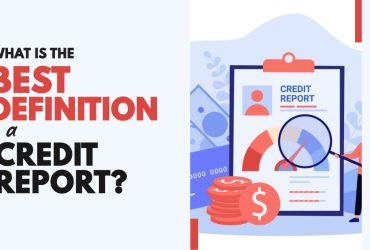Experian’s Study: Gaining Consumer Trust in Digital Era
by Almas Tariq
February 15, 2019
01:40 PM

Experian’s digital commerce insights show that consumers now interact differently with businesses, transitioning from face-to-face dealings to trust-based anonymous online relationships. These trusted interactions rely on businesses offering a secure environment and superior customer experience.
Digital Trust: How Experian’s Report Sheds Light on Consumer Confidence in Online Transactions
Experian’s Global Identity and Fraud Report, released in January 2019, found that 74 percent of consumers see security as the most important element of their online experience, followed by convenience.
- “Security and convenience are the bedrocks of a dynamic digital marketplace,” said Steve Pulley, Experian’s executive vice president. “This marketplace effectively manages risk and delivers a seamless experience. The information consumers share with businesses enables this. However, the same information increases their risk for fraud. This makes trust more critical than ever.”
- The study’s findings reveal a notable insight: 70 percent of consumers are willing to share more personal data. They’re inclined to do this with online organizations, especially when benefits are evident. One such benefit is enhanced online security and convenience.
- Both consumers and business leaders share a sentiment. They believe that new technologies and advanced authentication methods cultivate online trust. The study’s data supports this belief. Consumer confidence, in fact, surged from 43 percent to 74 percent. This spike was observed when physical biometrics were employed to safeguard accounts.
- “Trust originates from a business’s capacity,” Pulley added. “A capacity to extract more from existing information and to use cutting-edge technology. Their goal? To identify customers and offer a pertinent experience without upping the risk.”
- The report went on to discuss how many businesses are proactively sharing with customers how they use their personal information. The report found that nearly 80 percent of consumers say the more transparent a business is about the use of their information, the greater trust they have in that business. Fifty-six percent of businesses plan to invest more in transparency-inspired programs such as educating consumers, communicating terms more concisely and helping consumers feel in control of their personal data.
To develop the study,
Experian interviewed more than 10,000 consumers and more than 1,000 businesses across 21 countries around the world. Additional findings from the third annual fraud report include:
- 55 percent of businesses reported an increase in fraud-related losses over the past 12 months, particularly account opening and account takeover attacks.
- 60 percent of consumers globally are aware of the risks involved in providing their personal information to banks and retailers online.
- 90 percent of consumers are aware that businesses are collecting, storing and using their personal information.
- Consumers across most regions trust Banks and insurance companies across most regions. Online retail sites and social media sites trail considerably on trust.
- Nearly nine out of 10 consumers report conducting personal banking as their top online activity.
- Passwords, PIN codes, and security questions remain the authentication methods most widely used by businesses, followed by document verification, physical biometrics, and CAPTCHA.
The Global Identity and Fraud Report also shows how different regions across the globe view and manage fraud:
- Concern for fraud and increased fraud losses are highest among businesses in the United States.
- The greatest number of consumers who already have experienced a fraudulent event online are in the U.S., with the lowest number of consumers from EMEA.
- The U.S. and the UK lead with the biggest increase in fraud management budgets over the past 12 months, with three-quarters of businesses budgeting more for fraud management this year.
- Latin America is a top user of advanced authentication technology where CAPTCHA, physical biometrics and customer identification programs make up the top three authentication methods. This differs for businesses in other regions, which rely more heavily on passwords, PIN codes and security questions.
- Physical biometrics seems to have the largest positive impact on trust, particularly in Colombia and the U.S.
- The U.S. has invested the most when it comes to transparency initiatives in the past 12 months, and Colombia has the highest intent to invest more in the next six months.
Conclusion:
In the evolving landscape of digital commerce, the core of consumer interactions with businesses is trust. Experian’s comprehensive Global Identity and Fraud Report unravels the complexities of this trust, emphasizing the intertwining nature of security and convenience. As businesses and consumers traverse the digital realm, it’s imperative to prioritize both transparency and advanced security measures. The modern consumer demands a harmonious blend of these elements, and businesses must adapt to meet these expectations, creating a foundation for continued digital growth and mutual trust.
For more ScoreCEO how-to guides, tips, and tricks visit ScoreCEO’s How-To page.
The full Global Identity and Fraud Report can be downloaded here.
Table of Contents
Explore More Insights
Dive deeper into a wealth of knowledge. Discover a multitude of articles covering diverse topics, expert perspectives, and the latest trends. Feed your curiosity and expand your understanding.



